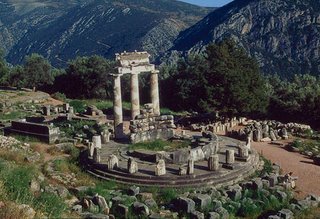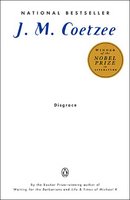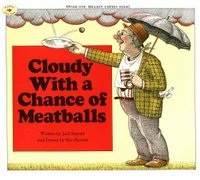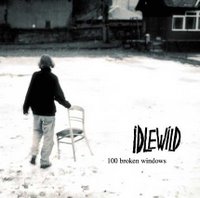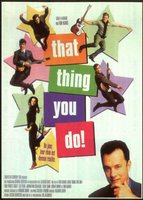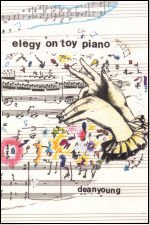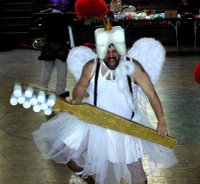Here's a poem for the President:
"Some Day, Years from Now"
"Some day, years from now, History will prove us to be right."
But History will prove nothing, will plead nothing, will confess
nothing, History will never say another word, History
lies under five feet of sand or dirt,
the blood underneath History's skin, thickened into bruises,
slowly moves downwards, in accordance with the law of gravity,
History's eyes are empty, and over its knocked-out teeth
there is no movement in its forever-set,
forever-silenced, forever-eighteen-year-old lips.

That's from
The Weight of the Body: Selected Poems by Stanislaw Baranczak, (bio:
here). This book won TriQuarterly's Terrence Des Pres Prize for Poetry about 20 years ago, and somehow found its way onto my bookshelf (I think it was via Jim, unloading his school library's "useless" poetry books on me).
Baranczak's work has a curious mix of political outrage and linguistic playfulness. This seems to be a popular style among a few other eastern European poets like Simic and Milosz. Try this, "The Three Magi," a poem about the secret police coming:
They will probably come just after the New Year.
As usual, early in the morning.
The forceps of the doorbell will pull you out by the head
from under the bedclothes; dazed as a newborn baby,
you'll open the door. The star of an ID
will flash before your eyes.
Three men. In one of them you'll recognize
with sheepish amazement (isn't this a small
world) your schoolmate of years ago.
Since that time he'll hardly have changed,
only grown a mustache,
perhaps gained a little weight.
They'll enter. The gold of their watches will glitter (isn't
this a gray dawn), the smoke from their cigarettes
will fill the room with a fragrance like incense.
All that's missing is myrrh, you'll think half-conciously--
while with your heel you're shoving under the couch the book they mustn't find--
what is this myrrh, anyway,
you'd have to finally look it up
someday. You'll come
with us, sir. You'll go
with them. Isn't this a white snow.
Isn't this a black Fiat.
Wasn't this a vast world.
The metaphor of the title, the Magi, is only slightly alluded to. There's the rather tangential mention of the newborn baby early on, and then the talk of myrrh. The myrrh comes up almost light-heartedly. There's a dream-like quality to the voice, like these things are happening and it's ok and these things just happen. But in truth, it's quite awful what's going on.
Here's one that's more fun with language:
"A Special Time"
We live at a special time (
clears throat) and that
we must, isn't that the truth, be clearly.
Aware of. We live at (
splashes water
into his glass) a special, isn't that the truth,
time, at a time of
continuous efforts on behalf of, at a
time of increasing and sharpening
and so on (
slurps water), isn't that the truth. Conflicts.
We live at a s-s-s-special (
sets down glass
with a clink) time and I'd like to here underline,
isn't that the truth, that it's along those lines
that guidelines will be outlined, sentences
lined through which don't adequately underline and
calculations out of line, isn't that the truth, thwarted
(
coughs) of those who. Any questions? I don't see any.
Since I don't see, I see I express the
expressing, in conclusion, the conviction that
we live at a special time, such
is the truth, isn't that the truth,
and that's the only truth.
That sounds a bit like a Bush press conference. He might have fit in among the late Soviets. In fact, I was most surprised at how many of the topics originally written about oppression in Poland in the 60's and 70's are relevant here today. The idiotic but bullying government, the common sense void, the collective apathy of the populace... at least in the U.S. today all the barbaric things the government is doing can be changed by our fair and reliable elections, and we know the criminals will be appropriately punished.
Right, ok.





